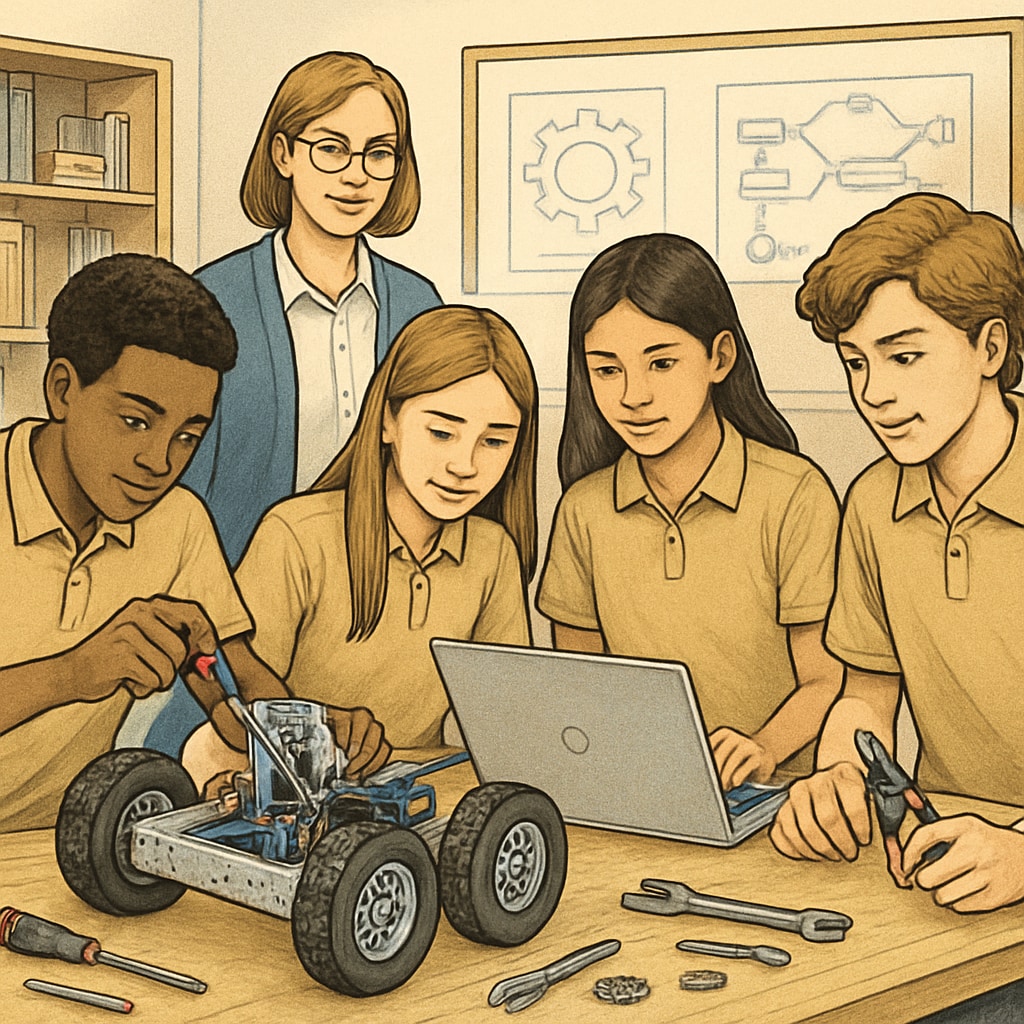The relationship between design engineering, master’s degree choices, and career development is deeply interconnected. From early K12 education to higher academic pursuits, fostering engineering thinking and career planning skills plays a vital role in preparing students for success in competitive fields like MEng (Master of Engineering) and MSc (Master of Science) programs. This article highlights the importance of early education in shaping future engineers and provides insights into navigating degree options for optimal career growth.
Preparing Future Engineers: The Role of K12 Education
Engineering thinking—a mindset focused on problem-solving, innovation, and adaptability—can be cultivated as early as the K12 stage. Schools that emphasize STEM (Science, Technology, Engineering, and Mathematics) education provide students with foundational skills like critical thinking, spatial reasoning, and teamwork. For example, hands-on activities like robotics clubs or design challenges can introduce students to real-world engineering concepts.
In addition, exposure to engineering-related subjects in high school helps students identify their interests and strengths. This early engagement is crucial for guiding them toward a design engineering degree and career path that aligns with their passions and aptitudes.

Choosing Between MEng and MSc: Key Considerations
Design engineering students often face the choice between pursuing an MEng or MSc degree. While both options offer valuable opportunities, they cater to different career aspirations:
- MEng (Master of Engineering): Geared toward practical application and industry readiness, MEng programs focus on hands-on experience and technical problem-solving. Graduates often pursue careers in engineering design, manufacturing, and project management.
- MSc (Master of Science): More research-oriented, MSc programs emphasize theoretical knowledge and innovation. This path is ideal for students interested in academia, research roles, or specialized fields within engineering.
Students should consider factors like their long-term goals, preferred learning style, and the specific requirements of their desired career when making this decision. According to Engineering on Wikipedia, understanding the nuances of each program can help future engineers select the degree that best fits their aspirations.

Career Development Through Design Engineering
Graduates with a design engineering background are highly sought after in industries ranging from automotive and aerospace to technology and construction. Their ability to bridge creativity with technical expertise makes them indispensable in solving complex problems and innovating new solutions.
However, the competitive nature of these industries requires more than technical skills. Employers value candidates with strong communication abilities, project management experience, and adaptability. Therefore, students should seek internships, research opportunities, and extracurricular activities during their academic journey to build a well-rounded profile.
As noted by Engineering on Britannica, design engineers play a pivotal role in shaping modern technologies and infrastructure. By strategically developing their skills and choosing the right academic path, students can position themselves for successful and fulfilling careers.
Conclusion: Guiding Tomorrow’s Engineers
From K12 education to postgraduate studies, every stage of learning contributes to shaping a future engineer’s career trajectory. By fostering engineering thinking early on and providing guidance in choosing between MEng and MSc programs, educators and mentors can empower students to make informed decisions and thrive in competitive industries.
Ultimately, the combination of strong academic foundations, practical experience, and strategic career planning ensures that design engineering graduates are equipped to tackle the challenges of their chosen fields and contribute meaningfully to society.
Readability guidance: Short paragraphs with concise information, lists to summarize key points, and strategic use of transition words ensure clarity and engagement. Passive voice and long sentences have been minimized for readability.


